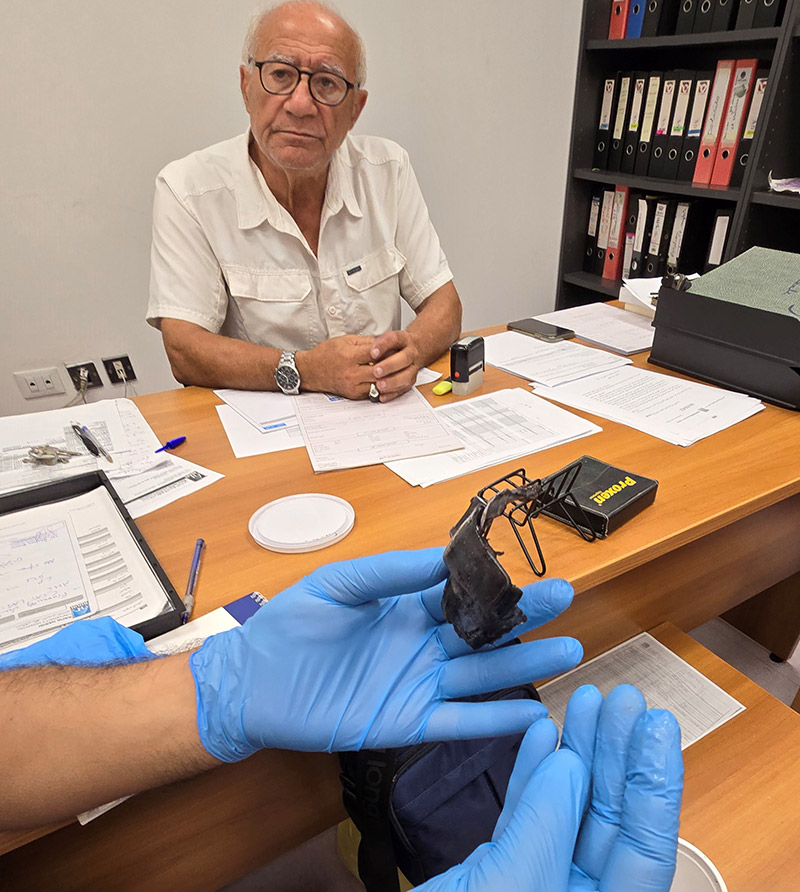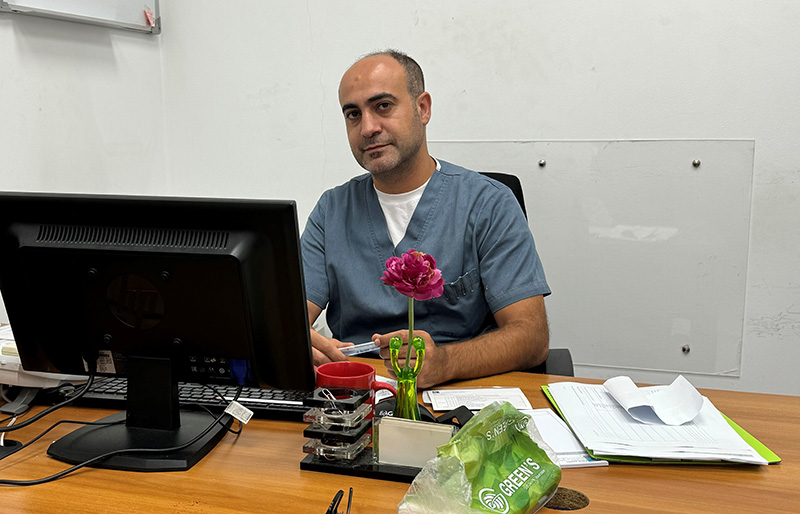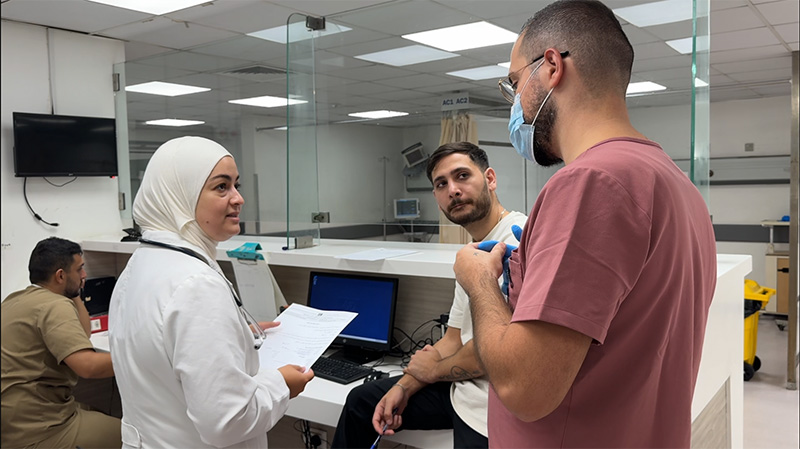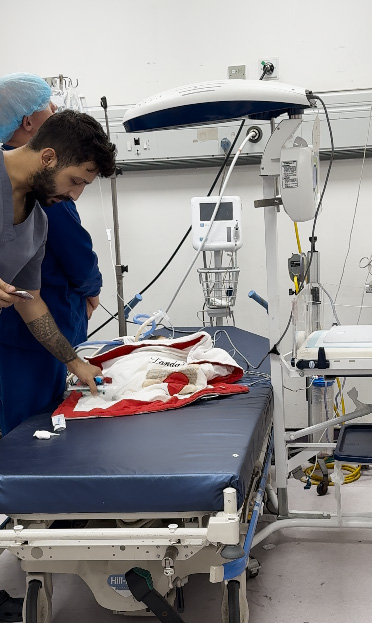1 October 2024 – Health workers in Lebanon are facing challenging circumstances as they confront death and destruction on a personal and professional level.
Lebanon’s health system has been thrust into crisis following the explosion of message-receiving devices on 17 and 18 September, and the events that followed.
 Dr Fathalla Fattouh, Thoracic Surgeon at (RHUH), with shrapnel removed from patient. Credit WHODr Fathalla Fattouh, Head Cardiovascular and Thoracic Surgeon at Rafik Hariri University Hospital (RHUH), witnessed the chaos firsthand. "The explosions caused a surge of nearly identical injuries—amputations, eye trauma, and shattered hip and femur bones—straining the hospital’s capacity to a near-breaking point,” he shared.
Dr Fathalla Fattouh, Thoracic Surgeon at (RHUH), with shrapnel removed from patient. Credit WHODr Fathalla Fattouh, Head Cardiovascular and Thoracic Surgeon at Rafik Hariri University Hospital (RHUH), witnessed the chaos firsthand. "The explosions caused a surge of nearly identical injuries—amputations, eye trauma, and shattered hip and femur bones—straining the hospital’s capacity to a near-breaking point,” he shared.
The devices, including pagers and VHF radios, exploded simultaneously, leading to a mass influx of patients requiring rare, specialized surgeries, such as ophthalmological and orthopedic interventions.
“We were forced to make difficult decisions," Dr Fattouh explained. "I believe that we did our best relying on available capacities, but with the escalation of events we need to plan for the worst,” he said.
 Head Nurse Mohamed at RHUH. Credit WHOMohamed, Head Nurse at RHUH, expressed disbelief at the scale of the event. "We never expected to deal with such a high number of identical, severe injuries all at once.
Head Nurse Mohamed at RHUH. Credit WHOMohamed, Head Nurse at RHUH, expressed disbelief at the scale of the event. "We never expected to deal with such a high number of identical, severe injuries all at once.
It was overwhelming." With resources already stretched, the hospital had to transfer many patients to facilities better equipped for their specific needs.
Mohamed recalled a specific patient he received in the emergency room with a piece of plastic lodged in his shoulder. “This patient suffered the exploded plastic part inside his body for over 24 hours because he insisted on moving his family to a safe location before seeking treatment,” recalled Mohamed.
 Dr Sara RHUH discussing a trauma case at RHUH. Credit WHOCompounding the challenges, Dr Sara, a Surgical Attending at the hospital, highlighted the struggle of managing burn victims. "There are only two hospitals in Lebanon prepared to treat burn patients, and once they were at capacity, we were left with nowhere to send the patients we received. It was a feeling of helplessness that we had never experienced before," she said.
Dr Sara RHUH discussing a trauma case at RHUH. Credit WHOCompounding the challenges, Dr Sara, a Surgical Attending at the hospital, highlighted the struggle of managing burn victims. "There are only two hospitals in Lebanon prepared to treat burn patients, and once they were at capacity, we were left with nowhere to send the patients we received. It was a feeling of helplessness that we had never experienced before," she said.
Overworked and under-resourced, the health workers continue to perform vital surgeries and life-saving interventions, while facing personal and professional stress,
Since the border escalations began on 8 October 2023, WHO’s Surveillance System for Attacks on health care reported that 45 health workers have died, and 65 have been injured—figures that don’t include those harmed off duty.
 Baby in ER at RHUH. Credit WHOWHO is actively supporting Lebanon’s health system to address the overwhelming needs. WHO continues to provide technical assistance to the Public Health Emergency Operations Centre (PHEOC) and to procure and deliver much-needed essential medical and surgical supplies. In response to the specific injuries caused by the explosions, WHO is training and mentoring health workers, ensuring they are prepared to deal with the complex and unusual cases that continue to emerge.
Baby in ER at RHUH. Credit WHOWHO is actively supporting Lebanon’s health system to address the overwhelming needs. WHO continues to provide technical assistance to the Public Health Emergency Operations Centre (PHEOC) and to procure and deliver much-needed essential medical and surgical supplies. In response to the specific injuries caused by the explosions, WHO is training and mentoring health workers, ensuring they are prepared to deal with the complex and unusual cases that continue to emerge.
As the violence intensifies, WHO, in coordination with the Ministry of Public Health and other partners, remains committed to addressing the critical needs of Lebanon’s health sector and ensuring health workers have the support they need to continue saving lives.


